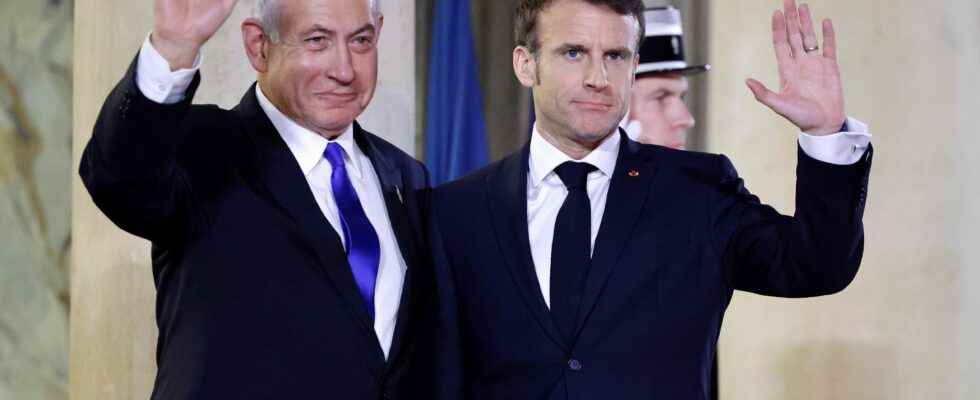The relatively warm nature of the recent reception of Benjamin Netanyahu by Emmanuel Macron will have surprised only those who consider, wrongly, that interpersonal relations take precedence in geopolitics over those between states, or that the Israeli-Palestinian conflict remains a priority on the international scene. contemporary. Admittedly, the French president would have much preferred to see the centrist Yair Lapid win the November 1 election, and the ultranationalist and religious composition of the new Hebrew government displeases him. In fact, Paris remains clearly committed to the two-state solution and in no way subscribes to Israel’s current policy, which was duly reminded to the guest. But beyond the Netanyahu coalition and the Palestinian question, the positions of the two states converge more and more on at least four issues perceived as priorities.
The first concerns, on the one hand, the common struggle against jihadism, and a distrust of Turkish imperialism on the other. On the first part, the intelligence services of the two States exchange and share closely with each other but also with common partners, from Morocco to Egypt via Jordan and obviously the United States. From this point of view, the wave of terribly murderous attacks suffered by France in the past decade will undoubtedly have modified its relationship to the scourge, and, indirectly, to the Jewish State, objectively located in the front line of Islamist terrorism for almost a half-century.
On the second part, despite a recent attempt at rapprochement by Erdogan, Israel has strengthened its gas and military partnership with Cyprus and especially with Greece, the latter having become, moreover, a client and privileged military partner of France. via a mutual military assistance pact which precisely follows Turkish intrigues in Greek maritime space. Ankara’s fanciful border claims with Libya or its pro-Hamas policy will also have reinforced the double French and Israeli mistrust.
Three major convergences
The second issue, more burning and concerning the architecture of world nuclear peace, is called Iran. In Paris, Netanyahu came to take Macron to witness that his tireless role as Pythia was not necessarily unfounded; indeed, the Iranian regime seems to be showing all the signs of a headlong rush towards the acquisition – illegal under international law and intolerable for its Sunni Arab, Pakistani and, of course, Israeli neighbours – of the atomic bomb. However, France did not wait until 2023 to reject such a prospect; Even before the Vienna agreement reached in 2015 (but denounced by Trump three years later), François Hollande had shown himself to be intractable. Today, his successor goes so far as to say he wants to “work together” with an Israeli Prime Minister on this affair, which has potentially very serious strategic implications.
Finally, by invading Ukraine in February 2022, Putin also contributed to bringing France and Israel closer together. As much as Netanyahu’s predecessor had insisted on remaining cautious if not neutral, “Bibi” clearly joins the Western camp, subject to strong American and European pressure to deliver military equipment to kyiv (at the risk of falling out with a Putin from whom he had been close from 2009 to 2020). In return for this, in Washington as in Paris or London, we are asked to temper the criticisms linked to the Palestinian file, relegated de facto from the rank of major conflict to that of a simple regional dispute. This was already illustrated by the Abraham Accords of 2020 and the maintenance of the 1978 and 1994 peace accords with the Jewish state, all signed by… Arab states.
We could add to these three major convergences an increasing volume of exchange and cooperation projects – including on the military level in the drone sector –, or even the sharing of increasingly common allies such as the Arab Emirates. United. In any case, those who had predicted ad nauseam the impossibility of close ties between France and Israel because of the disagreement on the Palestinian question, or by fantasizing the hostility of such a section of public opinion, are once again at their expense!
